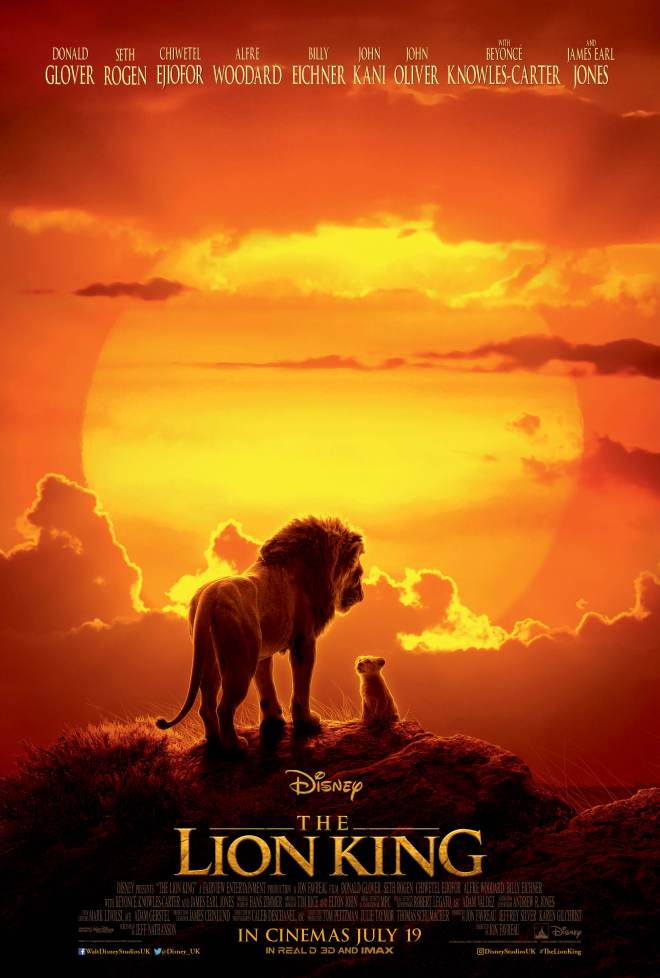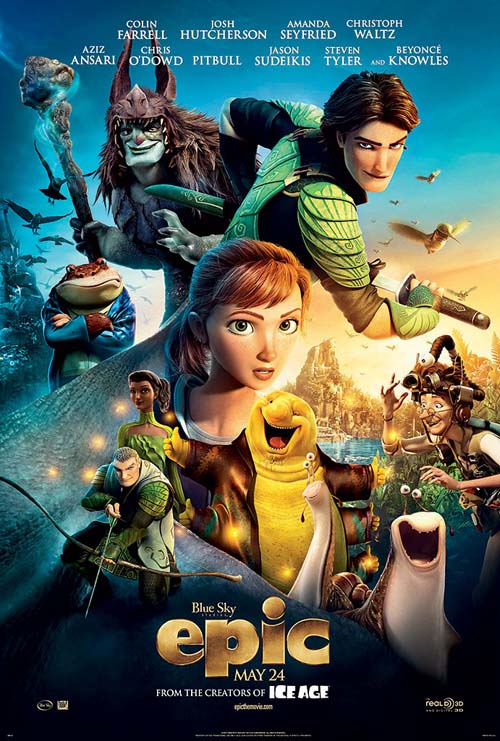
Dreamgirls is that rare beast – a movie that garnered so much buzz and so many critical plaudits throughout the awards season that it seemed a lock for an Oscar nomination for Best Picture… and was shut out completely. Well, having seen this movie for myself, I can say that, whatever grievous wrongs the Academy might have committed this and any other year, it did not do wrong in omitting this movie from the shortlist. A mediocre movie musical featuring a pedestrian plot (albeit with some nicely-wrought dramatic moments), disappointingly uncatchy music and frustratingly unimaginative choreography, the one thing this movie really has going for it is a superlative cast, all of whom are willing to give their roles everything they’ve got and more besides. Small wonder that Dreamgirls is racking up not just nominations, but also several acting wins. But that’s where comparisons to awards juggernaut Chicago should end – aside from a few truly show-stopping numbers, this movie would probably have closed on Broadway in a matter of weeks.
Although Dreamworks has recently taken out full-page ads stressing that Dreamgirls is a fictional movie not meant to refer to legendary record label Motown, it’s clear that the plot, protagonists, twists et al, were collectively inspired by (if not based on!) the Diana-Ross-led Supremes and their meteoric rise to fame. Beyoncé Knowles plays Diana… I mean, Deena Jones, who, alongside Lorell Robinson (Anika Noni Rose), are the considerably less talented back-up singers of the Dreamettes. But even though Deena might not have half the voice or natural talent of lead singer Effie White (Jennifer Hudson), she doesn’t lack in ambition. Before long, self-absorbed, strop-prone diva Effie finds herself increasingly shunted aside – the prettier, slimmer Deena is given top billing when the trio lands its first proper recording contract, and Effie finds that a hunger for fame and recognition means that even her songwriter brother C.C. (Keith Robinson) won’t stand by her. Soon Deena is even stealing from Effie the affections of the Dreamettes’ manically obsessive, controlling manager Curtis Taylor Jr (Jamie Foxx). As Effie spirals into obscurity, Deena takes the renamed Dreams to the height of fame… only to realise that the price she paid to stay in Curtis’ grooming stable and his bed wasn’t only Effie’s unhappiness, but her own.
Surprising for a movie so clearly paying tribute to the Motown era of great soul music, Dreamgirls‘ music is annoyingly pedestrian. Rather than churning out smoky, heartful songs, we’re treated to one flashy, beltin’ show tune after another, many of which are mixed in fairly haphazardly. Of course, some work better in the context of the film than others – usually when they form part of the repertoire of the musical stars featured within the movie. For example, when James ‘Thunder’ Early (a riveting Eddie Murphy), a big star on the series of travelling roadshows that constituted the black entertainment scene in the run-up to the 1960s’ tumult of race-based clashes, belts his hits (Fake Your Way To The Top or I Want You, Baby), it feels real and an organic part of the movie. A stand-out is Effie’s wonderful serenading of Curtis in much happier times with the intoxicating charm of Love You I Do… only to be told by Curtis that the song just won’t work as a first single.
Where writer/director Bill Condon falters is in incorporating the songs that are supposed to tell or further the characters’ own stories within the movie. Unlike in Chicago, into which script Condon wove a thoroughly effective mechanism to explain many of the musical set-pieces (they were the fanciful imaginings of fancifully deluded main character Roxie), these numbers stand out for being awkwardly-staged and a bit strange. Now bear in mind that I am a huge fan of old-school MGM musicals, so have never had a problem per se with characters occasionally bursting into song for no apparent reason other than that they can only express what they feel or want to say through the power of music. But it just doesn’t seem to work in the case of Dreamgirls, possibly because its plot is so hackneyed and feels like a overblown soap opera onto which some music is desperately grafted to hide its threadbare plot… rather than a musical for which songs genuinely advance plot and character development. To have them lapse into melodramatic semi-arias with poor lyrics is another – the excruciating Family being a case in point, when C.C., Curtis, Deena and Lorell try to sing Effie into submitting to their plan for her to play back-up to Deena’s star.
Much has been made of the movie’s exploration of race themes (particularly the deep-seated discrimination within the music industry that prevented a black singer from performing in public for white people, much less cross over to the nation’s pop charts) and its complex, real characters. Well, I’ll grant you the first – Dreamgirls does provide an incisive look at the vagaries of an industry built on profit and subsequently founded on racial bias. One of the nicest touches in the film is the contrast drawn between the remaking of Jimmy Early’s fledging soul smash Cadillac Car into a whitebread, horrifically sunny and blonde track; and Deena’s subsequent, inadvertent pilfering of Effie’s soulful comeback single One Night Only and muddying it with disco beats to make it to the top of the charts.
But the characters, particularly the ones that receive top billing, are annoyingly under-developed. Curtis is a one-note villain, whose initial charming facade too quickly gives way to his true, avaricious self… after which we never see even a hint of the man he must have been to win both Effie and Deena’s hearts. Very frustratingly, Deena, too, is not served well by the script – despite being the ostensible star, one can’t help but feel that she spends much of the film lingering on the sidelines. This is probably because Deena just isn’t all that interesting a character, her sheep-like acquiescence to Curtis’ control and subsequent attempts to break free all cookie-cutter and remarkably bland. About the only time Deena leaps off the screen is when Knowles really cuts loose with Listen, a howl right from her character’s gut as she pleads for Curtis to see in her something beyond a cipher, a vehicle to the top.
The far more interesting characters in the mix are self-absorbed, perpetually angry Effie and boozed-up fading star Jimmy. Small wonder both Murphy and Hudson are sweeping awards for their performances from just about every corner. Breaking out of his relentless gurning mode, Murphy proves he has dramatic chops and quite the impressive singing voice. He presents us with Jimmy in his ebullient prime, and Jimmy in his tragic decline (as he drops his pants onstage after delivering the wacky, impromptu Jimmy’s Rap), and is thoroughly convincing in both guises. Hudson, meanwhile, is the very definition of breakout star. Stealing every scene she’s in, she delivers her songs with such brassy confidence and sheer vocal prowess (it is clear that she is the best singer on display here, certainly miles better than Knowles – which is a nice point of irony, if you like) that it’s hard not to be blown away by her. Certainly every review will mention her jaw-dropping rendition of And I Am Telling You I’m Not Going – to me, not one of the songs that fit well within the movie because of its out-of-place staginess, but which Hudson really does sing the hell out of and more. She’s so good that it’s easy to forget all about Knowles, who is unfortunately forced to be rather colourless for much of the movie, until she gets to rip into Listen.
Dreamgirls is, for the most part, an entertaining watch. But, for all its attempts at weighty socio-drama, it remains a feather-light confection with far less compelling music than you feel its cast deserves.






